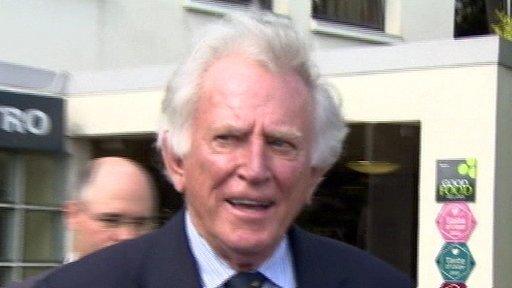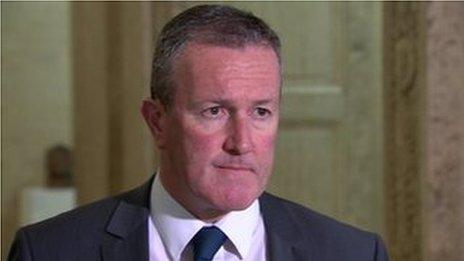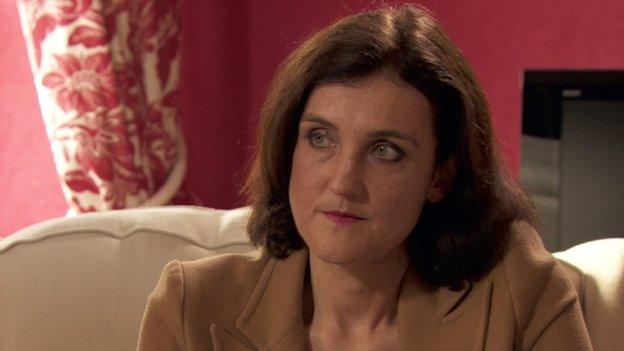Northern Ireland talks process: On the road to nowhere?
- Published
- comments

There are hopes Senator Gary Hart, who has been appointed the US envoy, will help to progress the talks
After the first two weeks of Stormont talks, are we anywhere nearer to avoiding the collapse of the Northern Ireland Assembly and the Executive?
The much derided £100m loan from the Treasury has bought a bit of time for negotiations to get under way, but there is little sign of compromise.
Instead, we have been treated to a bit of unedifying standing on ceremony, with the Democratic Unionist Party boycotting the opening session and political sensitivities dictating the talks should be based in the Northern Ireland Office's cramped Stormont House, rather than the more practical assembly building.
Because of this manoeuvring, it has been easy to portray the DUP as intransigent. However, so far the DUP has been the only party to put any tangible ideas into the public domain.
In a speech last week, First Minister Peter Robinson sketched out proposals to extend the local opt-out on the "bedroom tax" to cover new as well as existing tenants. Mr Robinson also called for the creation of a new executive fund to help people with high levels of disability.
Welfare reform woes
A DUP document seen by the BBC sets out six scenarios concerning the welfare reform stand-off. These include doing nothing, which the DUP reckons would lead to the financial collapse of Stormont.
There is also Northern Ireland setting up and funding its own welfare system, which the DUP thinks is "a complete non-starter" on grounds of expense, and the UK continuing to subsidise a generous, old-style welfare system in Northern Ireland, which the DUP concludes is not an option Westminster would entertain.
A fourth scenario, Northern Ireland moving ahead with the flexibilities already negotiated, is the DUP's preferred option. However, the party also mentions two other intriguing possibilities.
They are the so-called "devolution holiday" (not the DUP's term) triggered either by the UK government suspending Stormont, or an election leading to the failure to appoint a first and deputy first minister.
During a "time limited" break, Westminster would legislate to push welfare reforms through.
The final scenario is Westminster legislating on welfare while Stormont continues to sit. The UK parliament reserves the right to legislate on any matter it chooses, but a move like this would break the spirit of all the normal conventions regarding devolution.
Change in the air?
Whilst the DUP document provides observers with some food for thought, it does not answer the question with which I began this article.
As the Treasury loan demonstrated, cunning plans can play a part, but success in these negotiations is likely to depend on a shared determination by the politicians to overcome obstacles, rather than a subtle use of parliament's Sewel convention, external.
The parties seem more obsessed with getting their candidates and pacts in place for next year's Westminster elections than resolving their differences.
Sinn Féin has been rocked by the wave of negative publicity provoked by Maíria Cahill's harrowing testimony about her treatment by an alleged IRA kangaroo court.
Meanwhile, unionists seem to be concentrating on trying to mould the proposed panel on the parading dispute in north Belfast more to their liking.
So far, the Stormont talks appear underwhelming.
Maybe the imminent arrival of Gary Hart (a "problem solver" and "brilliant analyst", according to his friend US Secretary of State John Kerry) will change the atmosphere - but don't hold your breath.
- Published23 October 2014

- Published22 October 2014

- Published9 October 2014
